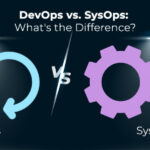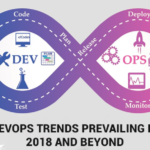Cloud computing is the use of computing resources (hardware and software) that are delivered as a service over a network (typically the Internet). The name comes from the use of a cloud-shaped symbol as an abstraction for the complex infrastructure it contains in system diagrams. Cloud computing entrusts remote services with a user’s data, software and computation.
There are currently 3 classifications for cloud computing:
1)IaaS (Infrastructure as a Service) – Amazon EC2, Microsoft Azure etc
2)PaaS (Platform as a Service) – Google App Engine, VMWare CloudFoundry, Microsoft Azure etc
3)SaaS (Software as a Service) – Salesforce Force.com, Google Docs etcUsing software as a service, users also rent application software and databases. The cloud providers manage the infrastructure and platforms on which the applications run.
Types of cloud
Public cloud
Public cloud applications, storage, and other resources are made available to the general public by a service provider. These services are free or offered on a pay-per-use model. Generally, public cloud service providers like Amazon AWS, Microsoft and Google own and operate the infrastructure and offer access only via Internet (direct connectivity is not offered).
Community cloud
Community cloud shares infrastructure between several organizations from a specific community with common concerns (security, compliance, jurisdiction, etc.), whether managed internally or by a third-party and hosted internally or externally. The costs are spread over fewer users than a public cloud (but more than a private cloud), so only some of the cost savings potential of cloud computing are realized.
Hybrid cloud
Hybrid cloud is a composition of two or more clouds (private, community or public) that remain unique entities but are bound together, offering the benefits of multiple deployment models.
By utilizing “hybrid cloud” architecture, companies and individuals are able to obtain degrees of fault tolerance combined with locally immediate usability without dependency on internet connectivity. Hybrid Cloud architecture requires both on-premises resources and off-site (remote) server based cloud infrastructure.
Hybrid clouds lack the flexibility, security and certainty of in-house applications.
Hybrid cloud provides the flexibility of in house applications with the fault tolerance and scalability of cloud based services.
Private cloud
Private cloud is cloud infrastructure operated solely for a single organization, whether managed internally or by a third-party and hosted internally or externally.
Undertaking a private cloud project requires a significant level and degree of engagement to virtualize the business environment, and it will require the organization to reevaluate decisions about existing resources. When it is done right, it can have a positive impact on a business, but every one of the steps in the project raises security issues that must be addressed in order to avoid serious vulnerabilities.
They have attracted criticism because users “still have to buy, build, and manage them” and thus do not benefit from less hands-on management, essentially “[lacking] the economic model that makes cloud computing such an intriguing concept.















